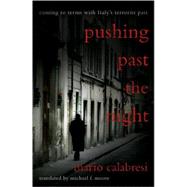
What is included with this book?
| Introduction | p. IX |
| translator's note | p. XV |
| the premonition | p. 1 |
| piazza del popolo | p. 9 |
| a photograph | p. 16 |
| the blue fiat 500 | p. 26 |
| graffiti | p. 36 |
| the interview | p. 44 |
| capsized | p. 51 |
| we have to say good-bye | p. 57 |
| the chamber of deputies | p. 64 |
| a left-wing painter | p. 73 |
| we shall love again | p. 80 |
| lost opportunities | p. 87 |
| the rules of the kitchen | p. 93 |
| apologies | p. 103 |
| breathe | p. 116 |
| acknowledgments | p. 123 |
| index | p. 125 |
| Table of Contents provided by Ingram. All Rights Reserved. |
The New copy of this book will include any supplemental materials advertised. Please check the title of the book to determine if it should include any access cards, study guides, lab manuals, CDs, etc.
The Used, Rental and eBook copies of this book are not guaranteed to include any supplemental materials. Typically, only the book itself is included. This is true even if the title states it includes any access cards, study guides, lab manuals, CDs, etc.
Excerpted from Pushing Past the Night: Coming to Terms with Italy's Terrorist Past by Mario Calabresi
All rights reserved by the original copyright owners. Excerpts are provided for display purposes only and may not be reproduced, reprinted or distributed without the written permission of the publisher.